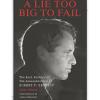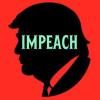The American Press Covers JFK's Murder, and the Impossible Comes to Pass

Photo Credit: Wikimedia Commons
Almost from the moment Dallas police arrested Lee Harvey Oswald two hours after the assassination of President John F. Kennedy on Friday, Nov. 22, 1963, the American news media establishment began trumpeting as proven fact the story that Oswald was the killer.
“President’s Assassin Shot to Death in Jail Corridor by a Dallas Citizen; Grieving Throngs View Kennedy Bier.” This headline from the New York Times is classic. It appeared the day JFK was buried. Only 72 hours had elapsed since JFK’s shocking assassination, and it was barely 24 hours since Oswald himself had been murdered on live television after proclaiming he was a patsy and denying again and again he had shot anyone. At that time it was physically impossible for the president’s murder to have been solved. Yet the nation’s premier newspaper was, without qualification or hesitation, characterizing Oswald as the “President’s assassin” and “President Kennedy’s assassin.”
It was also describing Jack Ruby, a sleazy strip-club owner, a violent hoodlum with a long criminal record and Mafia connections who had just brazenly shot to death a helpless handcuffed prisoner, as a “citizen” who “admired” JFK (and therefore impliedly murdered the alleged assassin because he venerated the slain president).
A few days later, the Times was reporting, also as if it was a proven fact, the story that Oswald had acted alone and there was no conspiracy behind the assassination.
During the next 10 months, the Times and the rest of the mainstream media confidently continued to propagate as true the story that Oswald (portrayed as a pro-communist misfit and loner) was the sole assassin. When the Warren Report, which adopted the same single-assassin theory and also decided that Jack Ruby was not a mobster and had shot Oswald for personal reasons and not as part of a conspiracy to silence Oswald, was released in September 1964, the media establishment eagerly embraced the Report, and since then it has unrelentingly disparaged Report critics.
The reasons why to its lasting discredit the mainstream media rushed to judgment about Oswald were amply explained by Robert Hennelly and Jerry Policoff in their seminal 2002 article “JFK: How the Media Assassinated the Real Story,” and will not be repeated here.
In the weeks immediately following the JFK assassination, when American media was saying over and over that Oswald was a Marxist leftist lone-wolf assassin, what was the Communist press in the Soviet Union saying about the assassination?
A review of the defunct The Current Digest of the Soviet Press discloses that the Soviet press’s view of the assassination was diametrically opposed to that of the American press.
In the first place, the Soviet Union’s communist press criticized the quality of the criminal investigation of the assassination. “[T]he investigation is not being conducted in the way any investigation should be conducted, especially in a case of this kind,” and “the investigation of the case of [the] President’s assassination is being conducted not only badly but obviously with the aim of confusing matters.” Instead of there being a thorough investigation, the Communist press announced, what was happening was that “[c]ertain circles are trying to cover up the traces of the bloody crime…”
Second, the Soviet communist press heaped scorn on the notion that “Oswald’s guilt has been completely proved.” It was of the view that “Oswald could not have planned and executed such an assassination alone.”
Third, the Soviet press insisted that JFK had been murdered by the right-wing extremist elements who had been “accusing him of ‘betraying’ the United States.” “[T]he assassination in Dallas was the premeditated act of fascist forces, the ultra-right-wing and racist circles,” and “was planned and executed by right-wing, pro-fascist elements.”
Fourth, the Soviet press stated that the motive for the assassination was opposition to JFK’s plans to improve relations with the Soviet Union and ensure peaceful cooperation between the United States and the Soviet Union. The persons responsible for the assassination were “displeased by any step aimed at relaxing international tension and improving Soviet-American relations,” and “feared” “peaceful cooperation and coexistence” between the two nations. The rightist extremists behind the assassination also “reviled [JFK] for his refusal to make an armed attack on revolutionary Cuba.”
Finally, the Soviet press was confident that Oswald’s murder by Jack Ruby was a gangland rub-out. “Oswald was executed in pure gangster style” and the murderer “had consorted with gangsters in Chicago.”
Also unlike the American press, the American Communist Party thought that right-wing extremists were behind the assassination. It issued a press release announcing that “the assassination of the President was the result of the criminal activity of ultra-right-wing forces, Dixiecrats, and racists, who stop at nothing …” Gus Hall, the head of the American Communist Party, criticized the quality of the investigation of the assassination: “The course of the investigation testifies to its one-sidedness, ineptitude and, I am afraid to say, a reluctance to find the true assassins.”
Fidel Castro, the communist dictator of Cuba, delivered a public speech at the University of Havana on Nov. 27, 1963, five days after JFK’s murder. In that speech he said that it was “improbable” and “almost impossible” that Oswald could have shot JFK with a mail-order carbine that sold for $12.78; that the assassination stemmed from “a sinister conspiracy,” and that the assassination plot was “a plan against peace, against Cuba, [and] against the Soviet Union”; that “those responsible for Kennedy’s death desperately need to eliminate the suspect [Oswald] at all costs”; that Jack Ruby was “a gangster, a gambler” and that it was “ridiculous” to believe that “this vicious man, this gangster with a criminal record” would have shot Oswald “out of emotional reasons.”
In 2016, over 50 years after the JFK assassination, the incredible wrongness of American press coverage of the assassination is manifest.
The principal conclusions reached in the Warren Report (including in particular the lone-assassin theory) are discredited, and the Warren Commission itself is a symbol of government cover-up. As far back as the 1970s the U.S. House of Representatives Committee on Assassinations reinvestigated the assassination and concluded that it probably resulted from a conspiracy. It also concluded, among other things, that (1) the investigation of the assassination by the FBI, the CIA and the Warren Commission was deficient, and (2) Jack Ruby had ties to organized crime and likely did not act alone.
Furthermore, there is a growing scholarly consensus today that Lee Harvey Oswald (1) was not a loner or a misfit, (2) may have pretended to be a communist or leftist when he was actually a U.S. intelligence agency asset as well as an FBI informant, and (3) lacked the superhuman rifle marksmanship abilities attributed to him under the single-assassin theory. There is also consensus that the conspirators responsible for the assassination probably were not leftists but instead rightist extremists (including racists, militarists who wanted to invade Cuba and regarded any rapprochement with the Soviets as treasonous, fanatical anti-Castro Cubans, and individuals associated with U.S. intelligence or the Mafia or both).
One-hundred-eighteen years ago, on Sept. 9, 1898, Emile Zola was shaken to the core when with his own eyes he witnessed an impossible, unimaginable and unthinkable event. French military officer Alfred Dreyfus, a man the entire world knew to be innocent and against whom no trustworthy evidence of guilt had ever been produced, was nonetheless found guilty of treason after a month-long retrial in a court martial. The horror of the event stupefied Zola. “It was,” Zola wrote, “the sacred terror of the man who watches the impossible come to pass, rivers flowing backward toward their source.” (C’etait la terreur sacree de l’homme qui voit l’impossible se realizer, les fleuves remonter vers leur source.)
When we look back now at the American press coverage of the assassination and the subsequent investigation and compare it with contemporaneous coverage of those events by the communist press, we should be as jolted as Zola was in 1898, for it is now evident that once again the impossible has come to pass. The communist press, which was a mouthpiece for a totalitarian regime and had a deserved reputation for bias and falsehood, has turned out to have been more accurate, more reliable, and more prescient than was our own capitalist press, which enjoyed First Amendment protections and had long been renowned for its accuracy and impartiality.
What an embarrassment! What a cataclysmic catastrophe for freedom of the press in the United States of America!
Donald E. Wilkes, Jr. is a professor emeritus at the University of Georgia, where he taught in the law school for 40 years. This is his 46th published article on the JFK assassination.












comments